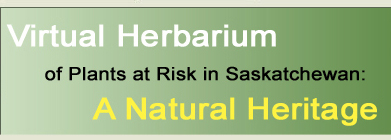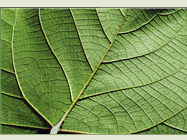
|

|

|

|

|

|

|
|
|
|
|
|
| Onosmodium molle ssp. occidentale (Mackenzie) Cochrane | Species Image Gallery (opens in a new window) |
||||||||
| TAXONOMY | |||||||||
| Family: | Boraginaceae | ||||||||
| Genus: | Onosmodium | ||||||||
| Species Synonyms: | Onosmodium molle var. occidentale
(Mackenzie) I.M. Johnston Onosmodium occidentale Mackenzie Onosmodium occidentale var. sylvestre Mackenzie Onosmodium bejariense var. occidentale (Mackenzie) B.L. Turner |
||||||||
| Common Names: | western marbleseed soft-hair marbleseed western onosmodium western false gromwell |
||||||||
| DISTRIBUTION | |||||||||
| Canada: | southwestern Alberta, southeastern Saskatchewan
- southwestern Manitoba |
||||||||
| Saskatchewan: | southeastern Saskatchewan; Qu’Appelle River Valley, Antler River Valley | ||||||||
| Ecoregion: | Moist Mixed Grassland, Aspen Parkland | ||||||||
| HABITAT | |||||||||
| Saskatchewan: | riparian shrubland | ||||||||
| Associated Species: | chokecherry, nodding stickseed, western snowberry | ||||||||
| RARITY STATUS | |||||||||
| Provincial
Status According to Harms (2003): |
Vulnerable |
||||||||
| Nature Conservancy Status: | G4G5 S2 |
||||||||
| Saskatchewan
Species at Risk Status: |
None |
||||||||
| COSEWIC Status: | None |
||||||||
| Western marbleseed is vulnerable in Saskatchewan because it is extremely rare. It is restricted to one small region of the province and population sizes are variable. | |||||||||
| SPECIES DESCRIPTION | |||||||||
| Height: | 30 – 90 cm (usually to 60 cm) | ||||||||
| Roots: | taproot woody | ||||||||
| Stems: | tufted, can be branched above, stout, straw-coloured, rough hairy | ||||||||
| Leaves: | few basal, mostly on the stem; basal leaves inversely lance-shaped, withering; stem leaves alternate, sessile, 4 – 8 cm long, 1 – 3 cm wide, reduced upwards, lance-shaped to elliptic to oval, tip short tapered, base rounded, 5 – 7 nerved, hairs coarse and loose, pressed to leaf, margin entire; nerves whitish on lower surface, coming together at apex, hairless | ||||||||
| Inflorescence: | terminal, very leafy, spike-like or coiled | ||||||||
| Flowers: | sepals free nearly to base, 7 – 12 mm long, densely short-hairy; petals 10 – 20 mm long, lobes 3 – 4 mm long, tubular, tip short-tapered, yellowish white or greenish; stamens included; style long and protruding from flower, persistent | ||||||||
| Fruits: | nutlets 1 – 4, basally attached, 3.5 – 5 mm long, lacking evident collar, ovoid, cream to light brown, shiny, smooth | ||||||||
| |||||||||